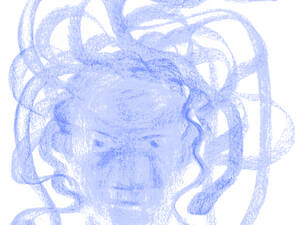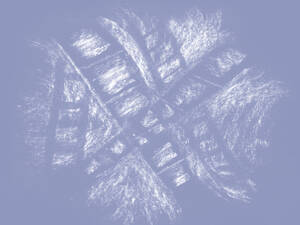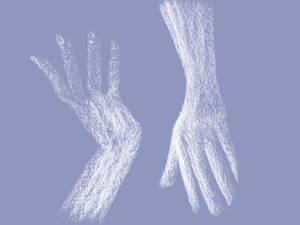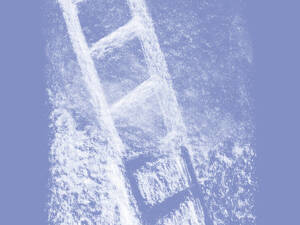Hélène Cixous
The feminist theorist’s expansive oeuvre turns exclusion into a site of possibility.
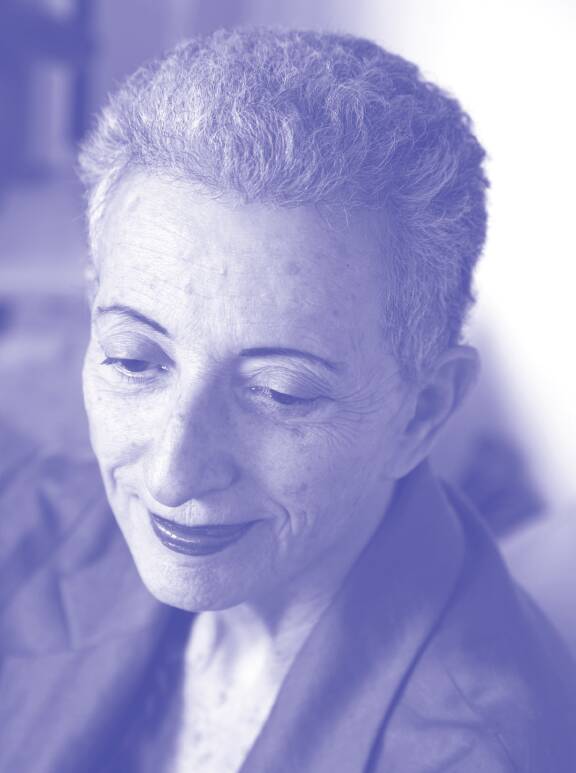
Hélène Cixous
“I shall speak about women’s writing: about what it will do,” Hélène Cixous announced in her 1975 essay “The Laugh of the Medusa.” In this dense yet lively polemic, Cixous contends that writing has functioned throughout history as “a locus where the oppression of women has been perpetuated, over and over.” Women’s freedom, she argues, therefore depends on “écriture féminine” (women’s writing): “By writing her self,” Cixous explains, “woman will return to the body which has been more than confiscated from her, which has been turned into the uncanny stranger on display.” Critically, what Cixous calls for is not simply writing by women for its own sake, but writing that, by attending to “the fantastic tumult of [women’s] drives,” upends the patriarchal order and disrupts the varied oppressions it structures. Woman, she declares, “is an integral part of all liberations.” By transfiguring language with the uncontainable reality of their experiences, women “will bring about a mutation in human relations, in thought, in all praxis.” Cixous’s electrifying essay, translated from French to English the next year by Paula and Keith Cohen, was soon taken up by a generation of feminist theorists and writers who developed her analysis and answered her call.
Cixous was born in 1937 in Oran, Algeria, to an Algerian Jewish father and a German Jewish mother, who had fled Germany as the Nazis rose to power. Her childhood in Algeria under French colonial rule during the Vichy regime was shaped by a sense of profound estrangement. “In Algeria I never thought I was at home,” she writes in her 1994 book Rootprints. But it was when she moved to Paris in 1955 to continue her studies that she “felt the true torments of exile,” experienced as “an absolute feeling of exclusion.” There she came into a new consciousness of misogyny, as she “abruptly learned that [her] unacceptable truth in this world was [her] being a woman.” (She would later consider her sense of doubled marginalization through a characteristically playful neologism, “juifemme,” meaning “Jewoman.”)
Faced with this persistent sense of non-belonging, she abandoned the search for a state and instead “adopted an imaginary nationality which is literary nationality.” In 1962, while working on her doctoral thesis, The Exile of James Joyce, or the Art of Displacement, she met the philosopher Jacques Derrida, also a French-speaking Algerian Jew vexed by this identity. The two became lifelong interlocutors and friends as they developed their fundamental critiques of Western philosophy, in texts that masterfully twist the tongue they each inhabit so ambivalently; Derrida once called Cixous their era’s “greatest writer in what I will call my language, the French language.” At the end of the decade, Cixous published her thesis and her first literary works—Le prénom de Dieu (God’s First Name) and Dedans (Inside), which won the prestigious Prix Médicis—and co-founded the Centre universitaire de Vincennes (later the University of Paris VIII), an experimental public school that emerged from the radical student movement of May ’68. She assumed a chair in English literature, and soon established the doctoral program in women’s studies, the first of its kind in Europe; the university remains her intellectual home to this day.
Perhaps the most persistent theme in Cixous’s oeuvre—which comprises more than 80 books, only a fraction of which have appeared in English, and spans plays, fiction, criticism, memoir, and poetry—is writing itself, which she has continued to understand as a vital site for contesting the received order of things. But where “The Laugh of the Medusa” boldly imagines writing as “the very possibility of change, the space that can serve as a springboard for subversive thought, the precursory movement of a transformation of social and cultural structures,” her subsequent works have a more intimate focus. In Three Steps on the Ladder of Writing, which collects a series of lectures from 1990, she explores “the strange science of writing” through three key “moments of apprenticeship”: the School of the Dead, where the writer learns to reckon with the mystery of mortality; the School of Dreams, where she learns to follow the destabilizing, defamiliarizing logics of dreams; and the School of Roots, where she learns to ground herself in rootlessness. Through readings of a personal canon of “writers of extremity, those who take themselves to the extremes of experience, thought, life”—a category that includes Franz Kafka, Clarice Lispector, Ingeborg Bachmann, and Marina Tsvetaeva—Cixous presents a vision of writing as an intrepid pursuit of the place “where knowing and not knowing touch . . . where we hope we will not be afraid of understanding the incomprehensible.”
This folio opens with a conversation between Cixous and Jewish Currents culture editor Claire Schwartz. It continues with a series of brief meditations on Cixous’s work by Jo Mrelli, aracelis girmay, Sarah Hammerschlag, and Jules Gill-Peterson, followed by an original song from the band DAYS, with lyrics drawn from Cixous’s anthology of her dreams. We conclude with an excerpt from Beverley Bie Brahic’s recently reissued translation of Cixous’s 2002 novel Manhattan: Letters from Prehistory, which traces the meandering thoughts of the autofictional narrator who—having fled Algeria and France and grieving the loss of her father and son—lives in exile between American libraries, where she finds refuge in literature. Today, as we confront a global anti-feminist backlash and the resurgence of authoritarian nationalism, we aim to forge new paths from Cixous’s generative thinking on gender, dream logic, and writing as wandering.

